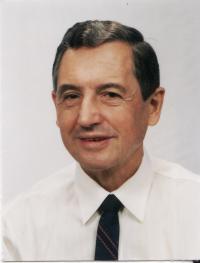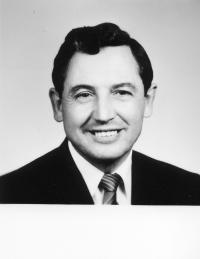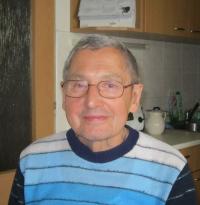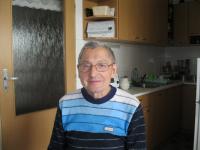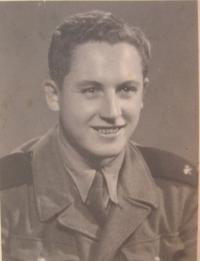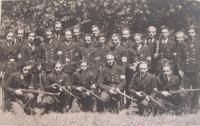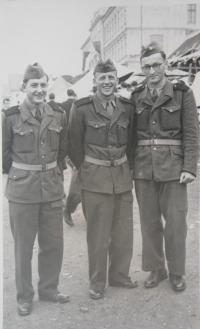I would have gone mad without faith.

Download image
Miloslav Pelcl was born in 1928 in Česká Třebová. After graduation from grammar school he decided to study theology in Hradec Králové in spite of the pressure by communist officials. Just like the others, this faculty was closed in 1950 following a governmental decree. Miloslav Pelcl had to begin military service in the 53rd Auxiliary Technical Battalion (PTP). Many other students of theology from other faculties served there as well, and they were meeting in the evenings to read religious literature and discuss their faith. Pelcl was arrested for this innocent activity and detained in a solitary cell in the Prague-Ruzyně prison where he spent eight months. On October 30, 1953 he was sentenced to 18 months of imprisonment, but since his sentence was eligible for President Zápotocký’s amnesty, he was released. He spent two more months in the PTP before he got home. Then he worked in the Primona company in Česká Třebová, and later for the Czechoslovak Railways. He was under the surveillance of the State Secret Police, because he still maintained contact with the Catholic church. Today he lives with his wife Alena in a retirement home in Česká Třebová.
